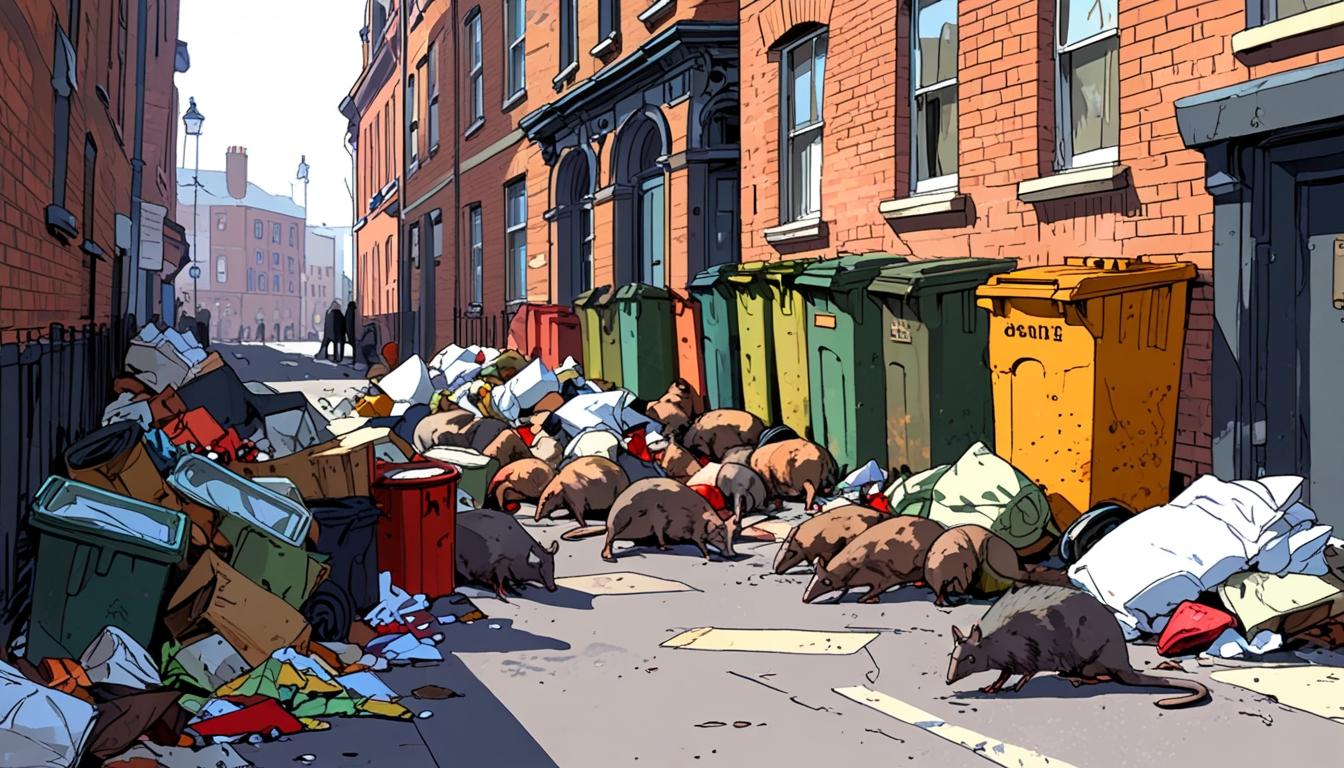Birmingham's streets are inundated with rotting rubbish, reflecting a deepening crisis that the city has struggled to manage amid an ongoing strike by refuse workers. The situation, which has attracted significant media attention, highlights not just logistical failures but also severe public health risks exacerbated by the accumulation of waste. Despite Birmingham City Council's claims of increased collection rates, many residents are witnessing a different reality, with bins overflowing and rubbish spilling over the pavements, creating a scene reminiscent of a post-apocalyptic landscape.
The strike, involving members of the Unite union, began in March, prompted by the council's controversial decision to downgrade roles within the waste collection service. Workers argue that the proposed removal of Waste Recycling and Collection Officer (WRCO) positions is not just a matter of pay cuts but also a threat to safety. Graham Marlow, a local resident, voiced the frustrations felt by many, stating, “How the council can keep a straight face and say they have everything under control is mad.” This sentiment echoes across the city, as many feel abandoned by the council amidst increasing levels of waste and neglect.
While Birmingham City Council claims it has cleared all large piles of waste in designated hot spots and over 85% of rubbish from the remainder of the city, the reality appears starkly contradictory. Images circulating in social media and news outlets reveal streets choked with fly-tipped items and piles of rubbish, indicating that much work still needs to be done. Reports of "cat-sized" rats have emerged, adding a distressing visual to the ongoing saga. The presence of these rodents raises health concerns, particularly among vulnerable populations, including disabled individuals unable to navigate through the debris blocking their pathways.
The local council contends it has improved its collection rates significantly since the strike began, reportedly picking up between 1,500 to 1,700 tonnes of waste daily, albeit with a reduced workforce. Yet, some residents question these figures. The Conservative leader of the council, Robert Alden, highlighted a troubling trend, noting that the withdrawal of national support from the army has led to many bin lorries ceasing operations, fueling a fresh wave of rubbish accumulation.
As the strike extends into summer, the tension between the council and the union remains palpable. Union representatives have indicated that unless satisfactory proposals are presented to address pay and role security, the strike could persist indefinitely. Zoe Mayou, a regional officer for Unite, underscored the ongoing struggle, stating, "If that's what we need to do, unfortunately... It's down to the council to come up with a proper offer and be transparent." The stakes are high, with experts warning of escalating public health risks due to the mounting waste and rodent activity, and the situation is becoming increasingly untenable.
As protests continue, a recent "mega picket" saw hundreds rallying in support of the bin workers, reflecting broader frustrations with local leadership and working conditions. Meanwhile, Birmingham’s position as a hub of culture and commerce is being overshadowed by this crisis, which threatens to tarnish its reputation. The council's responsibility to its residents is under scrutiny, and the call for effective solutions grows louder by the day.
With no end in sight to the strike, and with both sides standing firm, Birmingham faces a profound dilemma. The balance of power between elected officials and their employees is being reconsidered against a backdrop of public distress. As the rubbish piles higher, so does pressure for accountability and change, urging the city to seek a resolution that serves both its workers and the community at large.
Reference Map
- Paragraphs 1-2: Article 1
- Paragraphs 3-4: Article 4
- Paragraphs 5-6: Articles 3, 5
- Paragraph 7: Article 6
- Paragraph 8: Article 7
Source: Noah Wire Services
